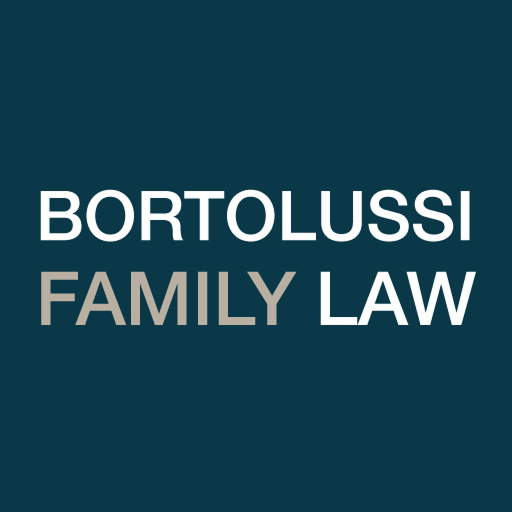Division & Equalization Of Property

Vaughan Divorce Lawyers for the Equalization of Net Family Property
When separating or divorcing, one of the most time-consuming and complex tasks involves the division and equalization of net family property. Property acquired by a legally married couple during their marriage will need to be catalogued, valued, and apportioned to ensure each spouse leaves the marriage with an equal amount of the wealth that was accumulated during the marriage. Depending on the circumstances, this can be a very labour-intensive process, sometimes even requiring the assistance of outside valuation or forensic accounting experts. It is important to begin this process as soon as possible to ensure all assets are properly identified and accounted for. This is particularly important in situations where there may be a risk of one spouse hiding or depleting assets to avoid including them in the equalization process.
Lawyers Assisting With Equalization of Family Property Including Business Interests, Pensions and the Matrimonial Home
At Bortolussi Family Law in Vaughan, our divorce lawyers have been assisting clients with simple and highly complex property equalization for almost four decades. We have over a century of combined in-house experience managing the division of complex business assets, stock options, pensions, and situations involving multiple matrimonial homes in a separation or divorce. We work with each client to develop a comprehensive account of all assets of the marriage early in the process to ensure their rights with respect to all family property are preserved. We prefer to do this as soon as possible, especially in cases where hiding or depleting assets may be a concern. We assist clients with complex asset division including:
- The matrimonial home(s);
- Family businesses including succession planning, estate freezes and family trusts;
- Preserving inheritances and gifts acquired during a marriage; and
- Pensions.
How Is Net Family Property Divided Under Ontario Family Law?
The Family Law Act provides an equalization formula to divide family property and assets upon separation. It requires separating spouses to identify and disclose all assets and debts on certain dates, the nature and source of the assets and debts, and values on these dates. Business interests, family trusts, pensions, the matrimonial home and all other property and assets must be taken into consideration. We closely review the disclosure provided by both sides and work with our client to identify any potential missing or erroneous information. Our experience in this area enables us to make note of discrepancies or other issues that could indicate a lack of transparency.
What Types of Property Are Included in an Equalization Payment?
Many assets owned by spouses in a marriage will need to be valued and divided to ensure each spouse exits the relationship with a fair allocation of property and/or value. This includes the following:
- Bank accounts, including investments, savings and other financial assets.
- The matrimonial home, which can be applied to more than one real property. For example, if one spouse also owns a cottage which the family regularly used, this may also be included in the equalization.
- Business interests, including a private family business, or stocks and stock options in publicly traded corporations and other corporate and business investments.
- The value of pension plans, if applicable.
What Types of Property Are Excluded From an Equalization Payment?
Certain property acquired during the marriage does not have to be included as family property for equalization. Examples of property that will be excluded from equalization include:
- Any property other than a matrimonial home acquired by one spouse as a gift from a third party during the marriage.
- Any income generated or any accretion in value of assets generated from the gift received during the marriage if it exists on the date of separation in the name of the donee.
- Inheritances received during the marriage.
- Note that income from the inheritance is NOT excluded unless a provision is specifically found in the Last Will & Testament of the deceased donor.
- Damages for pain and suffering received due to a personal injury suit or settlement.
- Proceeds of a life insurance policy.
- Property the spouses agreed in a domestic contract (pre-nuptial, cohabitation, marriage or post-nuptial) to exclude.
Property Division for Common Law Spouses
Common law spouses are generally not entitled to the same property rights as married spouses. As a rule, each spouse will leave the relationship with the assets they own in their own names. Property purchased jointly will be shared. In addition, the concept of a ‘matrimonial home’ does not apply to common law relationships. If one spouse holds title to the home, s/he is not obligated to share the value with the other common law spouse upon separation. Of course, there are exceptions to the rule. In some circumstances, a case can be made for dividing property where the non-owner spouse made significant contributions to a property. However, in most cases, each spouse will leave with the debts and assets they own independently.
For Skilled Representation With the Division of Family Property, Contact the Divorce Lawyers at Bortolussi Family Law in York Region
At Bortolussi Family Law, our divorce lawyers are dedicated to ensuring a fair equalization of property for each client. From our office in Vaughan, we assist clients from across the Greater Toronto Area, extending out to Mississauga, Brampton, Caledon, Whitchurch-Stouffville, Woodbridge, Maple, Kleinburg, Caledon, Concord, Vaughan, Bolton, Nobleton, Markham, and Etobicoke and all areas in between with all aspects of the separation and divorce process. Even in the most complex cases, our team has the experience to manage your situation and optimize results. We provide the comprehensive skills of a Bay Street firm, conveniently located north of Steeles Avenue. To discuss your circumstances and learn about the options available to you, please reach out to us online or by phone at 416-987-3300.
